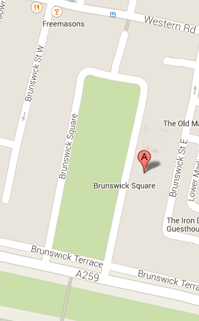17th May 1831
Eliza’s uncle found a carter who is going all the way to Liverpool and is willing to take with him the two hampers we have prepared for our kinfolk in Ireland. From Ireland there is a regular traveller whom I knew in bygone days into whose care the hampers will be delivered. They will finally get to their destination sometime in September or early October. We are only hoping that it will not be too late for them to get the nourishing nostrums and potions I have prepared, as well as the salted, pickled and dried foodstuffs we have sent. Eliza reckons that, if this new train travel were introduced throughout the kingdom, goods could be taken to Ireland in less than a s’ennight. But she is still given to a young girl’s dreams, is young Eliza.
I became lost in a cloud of remembrances when I bethought me of Tim the Pack-Man to whom we will entrust our packages once they land in Ireland. I think that, because I was so close to my Grandam and my mother that I, unlike my sister Joan(Eliza’s mother) still think of myself as coming from an Irish family. Joan, on the contrary, soon realised that many English people look upon the Irish folk with disdain, and has striven always to be perceived as English in speech, manners and (though only now did I realise it!) even birth.
Joan spent most of her time with my father while I, like my foremothers, spent all my days and long summer evenings ranging the countryside looking for herbs and flowers for potions; or gathering wilds fruits, or watching animals at play. Indeed, this was the reason that, unlike both Eliza and her mother, I never went to school, nor learned to reckon or to read. There was, alack, no time for it. When I wasn’t running through the woods and coppices and fields I was doing my own learning at my Grandam’s knee by the fireside.
By day I was a very savage little girl: I would never wear shoes for they slowed me down and chaffed my feet. Full wary of my mother’s hard hand if I were to snag or tear my clothes, I would stuff them beneath the bole of a tree and run free in just my shift, while my hair would fall from its wispy plaits within minutes of leaving home. For the rest of the day I would carry round evidence of my travels with mud and good rich earth, with bits of leaves and twigs and even, sometimes, feathers, bestrewing myself.I knew the all the dens and warrens for miles around and was treated by the creatures in them as though I were just another creature in their world. My skin was as brown as the nuts in May and my nails always rimmed with earth.
Yet by night, once scrubbed to within an inch of my life, I was as demure a little maid as any in the land. Unlike many other people, in our family we did not sleep in the shifts we wore all day, but donned night-shifts. Mine own were sewn by my Gradam who would spent winter evenings embroidering them with cunning little pictures of squirrels and birds and growing things as, in her soft and lilting Cork tones, she would recite the old Irish tales or tell stories culled from her own memories and those of her own grandam. Joan would finish her work and go straight to her bed but I would stay up until dawn broke if no-one remembered to put me to bed.
But this well-worn pattern of life was interrupted when I was nigh on ten years of age. ‘Twas then Tom Ostler from the nearby village, arrived at our cottage pale and anxious, to bring us the news that my father lay dead hard by the village forge. From that day forth our lives were changed.


